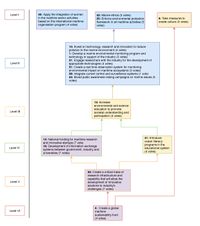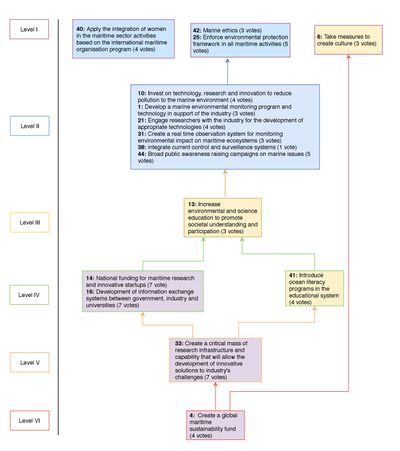Larnaca International Mobilisation and Mutual Learning (MML) Workshop
|
Executive Summary
The Larnaca International Mobilisation and Mutual Learning (MML) workshop entitled “What Responsible Research and Innovation (RRI) actions are needed for sustainable Maritime Research, Technological Development and Innovation (RTDI) by 2030?” was organized by CNTI and XPRO Consulting Limited (XPRO) with the support of the Maritime Institute of Eastern Mediterranean and the Municipality of Larnaca in the context of the MARINA project, which is funded by the European Union’s Horizon 2020 Research and Innovation Programme. The workshop was held on 11th April 2018 at the House of Arts and Literature in Larnaca, Cyprus.
The workshop is one of the 34 European MMLs that will be conducted by the MARINA project partners all over Europe, as well as the fifth of the eight international workshops that will be conducted European cities between 2017 and 2018. The goal of the MML workshops is to create common visions, engage stakeholders to decide on common action plans on important marine issues related to the European Blue Growth Strategy, which will be exploited as policy recommendations on a national and European levels. In addition, the results of the workshops will provide input for the roadmap of Responsible Research and Innovation good practice as well as recommendations about embedding the RRI in the policy-making processes. The results will be assembled in a comprehensive report that will be submitted to the Directorate-General for Research and Innovation of the European Commission.
The Larnaca International MML workshop brought together fourteen (14) participants from the public and private sectors, NGOs, citizens and local authorities interested in issues concerning the development of a maritime industry in Cyprus and across Europe, which will be characterised by resilience, responsibility and sustainability.
The main conclusions of the workshop could be summarised as follows:
- Collaboration between policy makers, the academia and the industry is essential in order to (a) develop lesiglation to govern marine activities, (b) indicate the societal and industrial needs (c) produce results, products and technologies which are aligned with the needs of the industry.
- Exploitation of the new technologies and the internet in order to develop tools, which foster open access to data, and raise awareness among the stakeholders about the marine environment.
- Creation of physical infrastructure to host scientists is pivotal for the development of marine RTDI in Cyprus.
- Introduction of marine related courses in all levels of the educational system, from primary school to Universities is urgent to cultivate marine culture among the citizens.
- Establishment of funding schemes deriving from national and European funds to assist new research and start-up initiatives.
The Triggering Question (TQ) of the workshop was:
"What Responsible Research and Innovation (RRI) actions are needed for a resilient, responsible and sustainable maritime sector by 2030?"
In response to the TQ, the 14 participants came up with 45 ideas, which were categorized in 8 clusters. Following the voting process, 35 ideas received one or more votes and were structured to create the influence MAP shown below.
According to the participants of this workshop, the ideas that appear to be the most influential were:
- Action #4: (4 votes) Create a global maritime sustainability fund
- Action #33: (7 votes) Create a critical mass of research infrastructure and capability that will allow the development of innovative solutions to industry's challenges
- Action #16: (7 votes) Development of information exchange systems between government, industry and universities
- Action #41: (4 votes) Introduce ocean literacy programs in the educational system
Demonstration of IdeaPrism Functionalities
During the workshop, the participants tested IdeaPrism v.2. This work was conducted in collaboration with Ekkotek High-tech business incubator.
The workshop was facilitated by Yiannis Laouris, Andreas P. Andreou and Katerina Fotiou.
Communication Material

